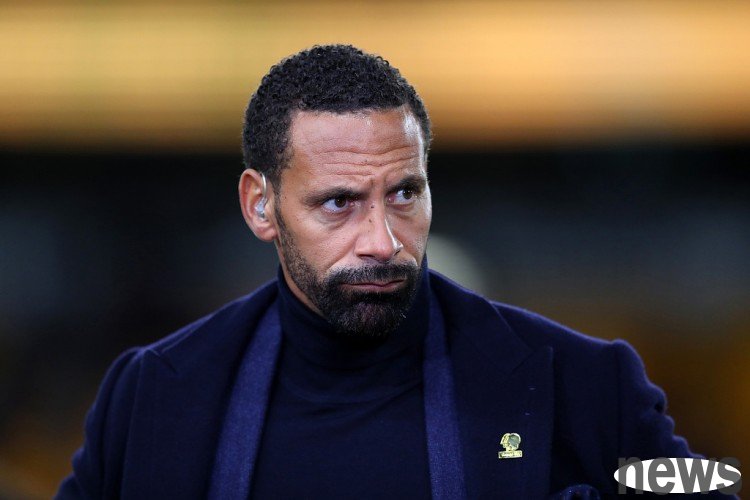
In an exclusive interview, Manchester United legend Ferdinand talked about the in-depth conversations he had with his former teammates through the podcast, recalled his own experience as a player when he chose to hide personal pain due to the environment in the locker room, and expressed his views on Gerrard's pointed comments about England's "golden generation."
Your recent podcast interview with Wayne Rooney generated a huge response. How did you feel hearing him open up about his drinking problems and insecurities?
I was like, "Wow, I didn't expect to hear that at all." We were lucky that Wayne (Rooney) felt comfortable enough to be so open. I've seen Wayne at his lowest points and in difficult situations. We live, share, and breathe football together, so I definitely see things that others don't, but he tells me a lot of things that I had no idea about before.
Rooney mentioned that he wished you could have told him about your wife's illness. Why did you choose not to say it at that time?
We had dinner together (the night before the interview) and he said, "I wish you had told me. I wish you had told me when your wife first got cancer." I said, "Wayne, I don't want to affect your performance or bring any negative impact on the team." Energy, making things all about me. "There's a kind of machismo in that male environment where you're like, 'I can't be that person. ' Those are things I learned later, you need to talk, you need to communicate with your teammates, your colleagues, your family or your friends. But I didn’t have those skills at the time.
What was your original intention for starting a podcast? Why did you give up your job as a commentator for TNT Sports?
(I want the podcast to be a) "safe space" where guests can "take control of the narrative surrounding themselves." There's too much media now, more than ever, too many people talking, and probably 99% of the people in the media don't have any real understanding of the situation [people in football] are getting into. That’s okay, but I know what it’s like to be frustrated as an athlete when the stories and articles written about you aren’t true. Well, here, you can define it yourself.
What do you think of Irving? It seems that many people have misunderstandings about him.
I have always felt that the criticism Irving received was unfair. My friends would be like, "Oh, he comes across like this or that," and I'd be like, "You don't understand." In a bar, you want to sit next to Michael Owen because he's funny, direct and speaks his mind. It's less obvious when he's doing regular TV, which I can understand. Working for a large company has rules and boundaries, which can create a sense of rigidity. One of the main reasons I left broadcasting was because I wanted that freedom.
Gerrard said that England's "golden generation" are "arrogant losers". Is this statement too harsh?
I think there is some truth in this. There were many reasons why we didn't succeed, but this was one of the main factors. Our egos stem from our desire to be successful at our respective clubs. We have to go back to Sir Alex Ferguson, Wenger or Mourinho, those strong, powerful coaches who created in all of us a powerful drive to win for their team.
I'm glad to hear Gerald say how I feel. At the England training camp lunch table I would look across the table at Gerrard, thinking about United playing Liverpool in a few weeks, and think, "I don't even like you right now". Sometimes I feel the same way about John Terry, Lampard, or whoever we compete against in the league. This is detrimental to the England team. There is no cohesion.
Will you interview John Terry?
I don't know. I thought he might need to talk to my brother first before he could talk to me. And he hasn't spoken to my brother yet.
Looking back, do you think things would have been different if the locker room had been more open about talking about psychological issues?
We would never go to the media and say, "I'm feeling really low and I may need to take a few months off because of my depression. Something's going on at home. I have a drinking problem." That would create huge headlines and people would just be like, "What?" We would be blown away. But I'd love to see what that brings to our team if we can be a little more open and talk about these types of things. I really believe that would help.
